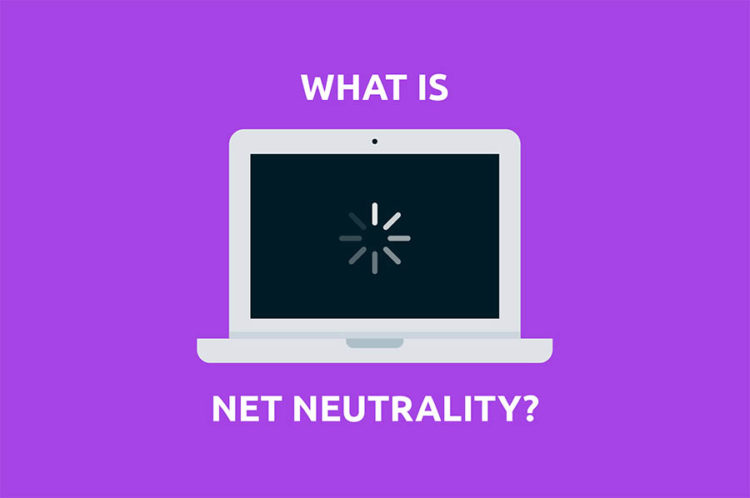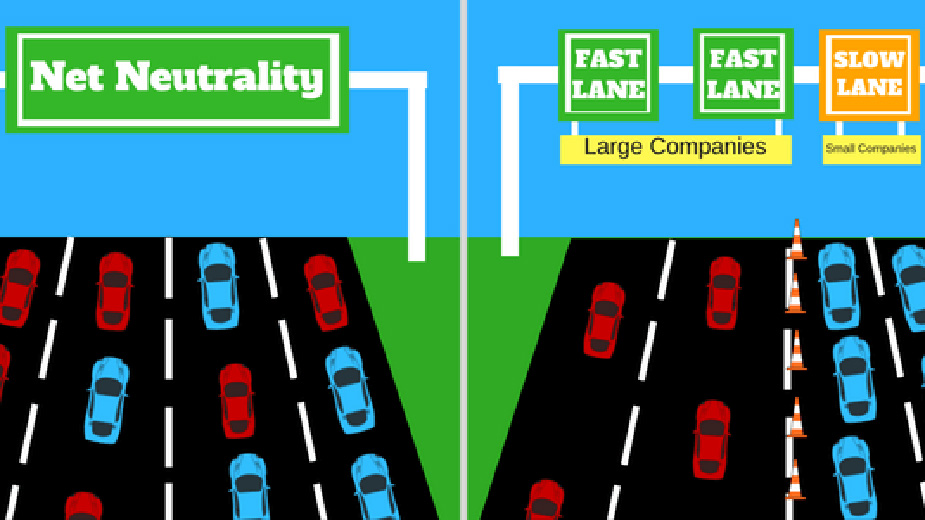What Do You Need to Know About Net Neutrality?

What is Net Neutrality?
The term "net neutrality" refers to the principle that the internet should remain as free and open as possible.
To put it another way, no one can "possess" the internet or exercise undue influence over the content that is published on it. This bears resemblance to the early days of the internet, when it was developed as a platform for free information exchange.
Today, however, net neutrality refers to a more particular issue, namely the control that internet service providers wield over the internet.
In short, ISPs must provide the same service to all users under net neutrality, regardless of who they are or, more significantly, how much they pay for their service. There isn't a ranking system in place. The internet remains free and open because each user is treated equally.
No blocking, throttling, or paying-for-preference are the three main points of net neutrality.
To the typical person, including these aspects in an internet regulation legislation appears to be a no-brainer, but as you'll see, ISPs insist things aren't so straightforward. They also contend that proponents of net neutrality overestimate the consequences of a lack of net neutrality.
Why is Net Neutrality Important?
Net neutrality proponents claim that establishing this regulation and enforcing it in law is important to defend the internet's freedom and openness.
The internet, in their opinion, is a vital stronghold of free speech. Anyone can publish anything they want on the internet right now. Of course, some restrictions apply, such as when the content is harmful or illegal. However, there are no rules beyond that. This is one of the things that makes the internet so special. We have never had access to such a system of publication and unfettered information sharing in human history.
Advocates worry that if net neutrality is eliminated, ISPs would have too much control over what content we see. When average people go out looking for information, sites that can afford to pay higher costs to ISPs may get a leg up.
Major news networks, for example, may use their substantial resources to buy ISP preference. This would mean that their work would reach a wider audience, impacting how people think about and debate current events.

The Argument Against Net Neutrality
Net neutrality appears to be a rather fundamental notion based on what we've covered so far. So, who would be against it? Why would they reject it, and perhaps more importantly, why would they oppose it?
The internet sector, particularly ISPs, is the short answer to the first question. Why are they so opposed to it? The solution to this question is a little more complicated.
They claim that maintaining net neutrality inhibits innovation. Netflix and YouTube, as well as CNN, consume far more data than the vast majority of websites, according to them. As a result, ISPs want to be able to charge these customers more, claiming that this will allow them to invest more in innovation and infrastructure, resulting in a better internet for everyone.
The type of scenario that proponents of net neutrality warn about simply does not occur, according to the ISPs. They claim that managing the kind of content that individuals see is not something they are interested in. Instead, they want to charge what they believe is a reasonable price for their product.
Net neutrality supporters often reject this logic, pointing to the numerous prior instances when big business has utilized regulation (or a lack thereof) to limit information flow and establish monopolies. The sheer prospect of this happening, they believe, is reason enough to take steps to ensure it never occurs.
Of course, this frames the discussion as one between regulation and innovation. This may or may not be the best way to look at it; proponents of net neutrality are searching for a legal framework to safeguard what they consider to be core elements of a free internet. Nonetheless, this is how the discussion is frequently framed.
What's the Latest in 2021?
Despite this, the evidence implies that ISPs have little influence over internet priority, but we don't have enough information to determine if this is accurate.
Shortly after Trump's FCC (Federal Communications Commission) revoked Obama-era rules, the country's biggest ISPs issued statements stating that they would not violate net neutrality's key principles (kind of, anyway). They were also functioning in a situation where the restrictions had been relaxed, so who knows what they've been up to since then.
Unfortunately, the FCC's absence of guidelines means that ISPs are not required to share data linked to throttling and blocking. This is troubling since it implies that they are almost probably involved. It's just that no one is paying attention.
California Is Allowed to Enforce Net Neutrality
Individual states have their own power to act, despite the fact that the federal government plays a significant role in setting the environment for certain concerns. They frequently do so when a federal policy contradicts the wishes of the people in that state.
California is recognized for being on the cutting edge of law, so after the FCC eliminated net neutrality from its policy, the state set out to create its own.
Of course, this was challenged in court. California can now enforce these rules at the state level, thanks to a recent decision.
Although it is a minor victory for net neutrality activists, it is nevertheless a victory. It demonstrates a possible road forward: modifying laws state by state. This, on the other hand, is unlikely to be as effective as persuading the FCC to amend its rules.
What does the future hold for Net Neutrality?
We are currently in a wait-and-see situation. Meanwhile, it's critical to be informed about the discussion, participate with political authorities, and monitor ISPs to see if they're abusing the existing level of freedom. So, we'll see what happens next, but when it does, you'll be able to read about it here.
Related Posts
 Technology
Technology
Faster Browsing: Essential Keyboard Shortcuts Guide
Boost browsing speed with essential keyboard shortcuts for all major web browsers. Learn faster navigation, tab control, and productivity tips.
 Technology
Safety
Technology
Safety
How Gamers Can Stay Safe From Online Cyber Threats
Learn how gamers can protect accounts, devices, and personal data from cyber threats including phishing, malware, scams, and identity theft while gaming online.
 Technology
Technology
Best Free Movie Streaming Sites to Watch in 2026
Discover the best free movie streaming sites. Watch movies, live TV, anime, and documentaries legally with no subscription required.
 Internet Bundles
Internet Bundles
Finding Reliable Internet Without Overpaying
Compare the best internet providers near you. Learn how to choose reliable, affordable internet based on speed, price, availability, and real-w
 Internet Bundles
Broadband Deals
Internet Bundles
Broadband Deals
Cheapest TV Packages and Providers Compared 2026
Compare the cheapest TV packages from top providers in 2026. See channel counts, pricing, and bundle options to find the most affordable TV service for your home.